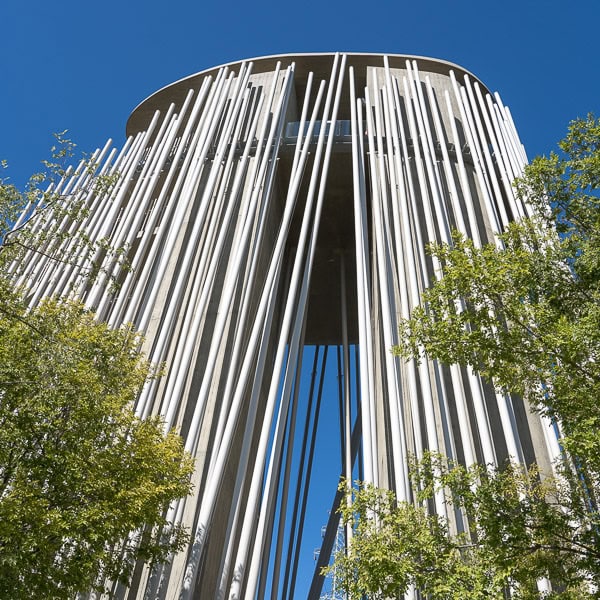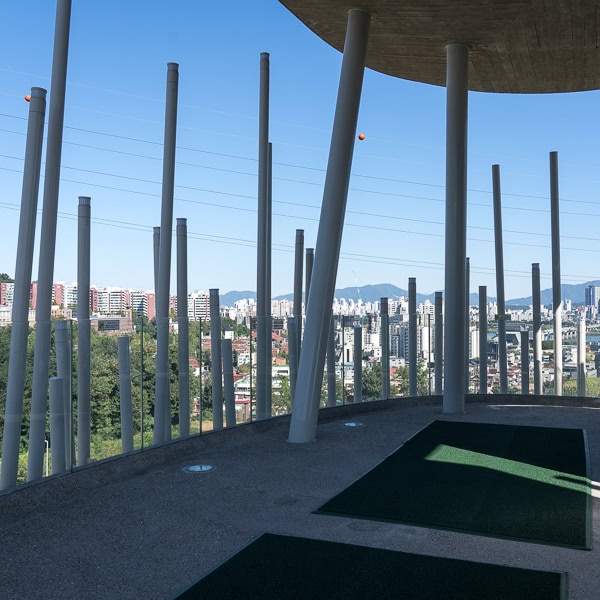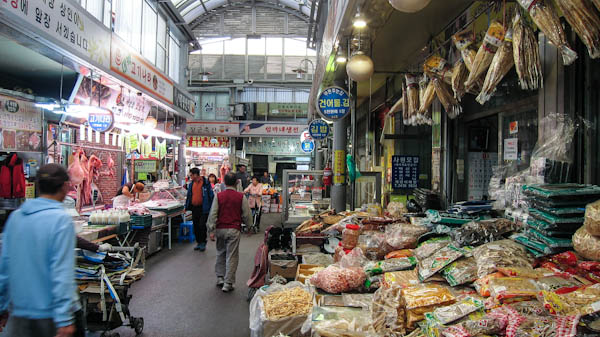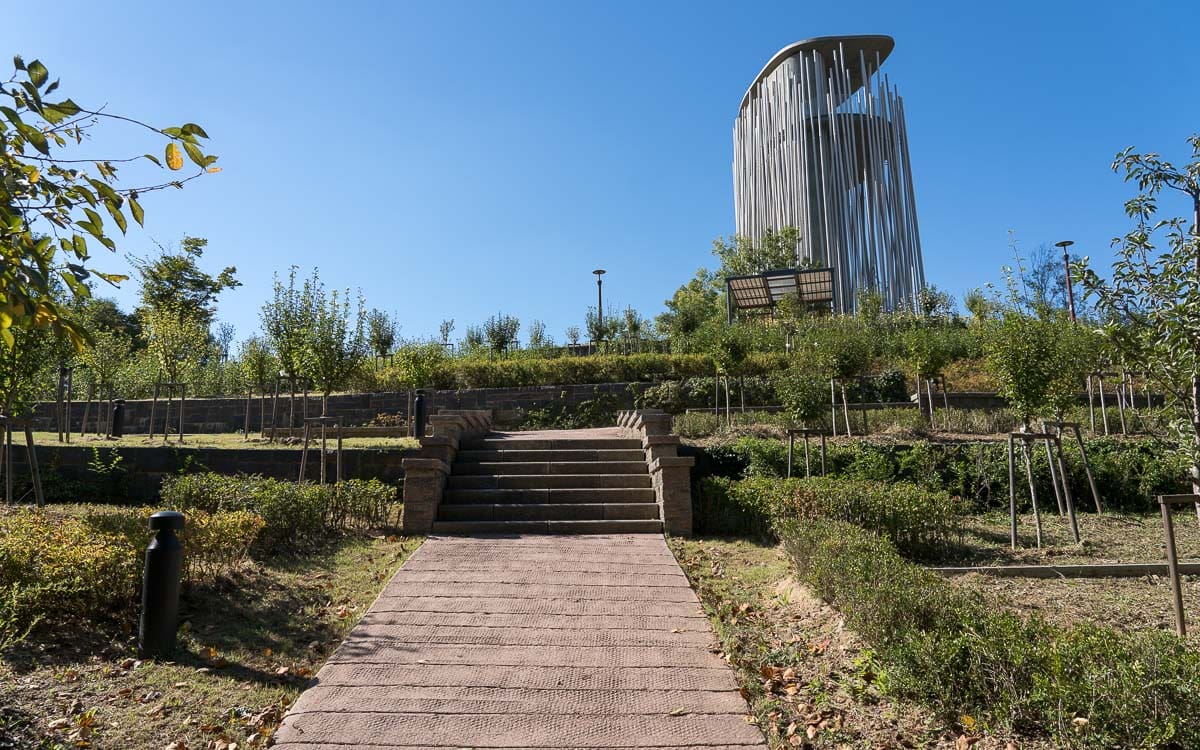
Gwangjin Forest Naru Park is a neighborhood park located in Gwangjin-gu, between Guui-dong and Gwangjang-dong, close to the Hangang River. The park has two sections on both sides of Cheonho-daero at the northern end of the Cheonho-daero Tunnel.
Since the 1970s, the area has gone through various stages of development. As with other parts of Seoul, the Seoul Metropolitan Government worked to restore green space to the area.
In 2019, Gwangjin Forest Naru Park opened to the public.
Gwangjin Forest Naru Observatory

A highlight of the park is the Gwangjin Forest Naru Observatory, also known as ‘Growing Forest.’ This prominent public art installation in the park’s eastern section blends architecture and nature.
The vertical white columns of the observatory resemble a woodland canopy. Like a forest, the design allows light and wind to pass through. The designers aimed to create a living piece of art that connects visitors to nature.
Over time, planted trees and vines will grow around and through the columns, blending nature with architecture.
Visitors to the park can climb the stairs to the observatory deck of Gwangjin Forest Naru Observatory, which stands 23 meters (75 feet) high. From there, you can enjoy panoramic views of the Hangang River, Achasan Mountain, and the Seoul skyline.
In the distance, you can see landmarks like N Seoul Tower and Lotte World Tower. You also get a bird’s eye view of flower terraces and walking paths in the park below.
Gwangjin Mugunghwa Garden
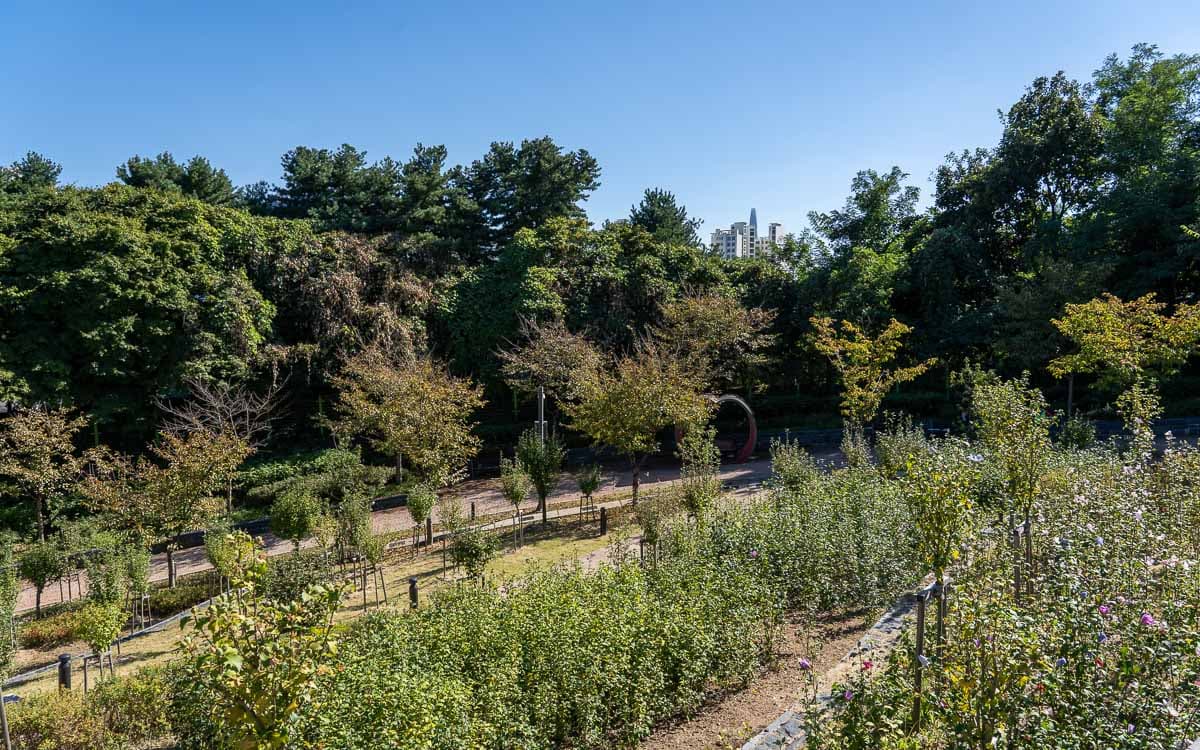
Surrounding the observatory is the Gwangjin Mugunghwa Garden. The garden features walking trails, a carbon-neutral forest, and mugunghwa flower terraces.
Mugunghwa is the name for hibiscus syriacus, the national flower of South Korea. For centuries, the flower has been an important symbol of Korean culture.
The garden has over 200 Mugunghwa shrubs in five varieties, creating a colorful and varied landscape at any time of the year.
Mugunghwa comes in different colors, blooms from July to October, and represents the endurance and perseverance of the Korean people. You can find them at schools, government buildings, and public parks— including Gwangjin Forest Naru.
During development, the project added 189 new trees representing 45 species. Over time, these trees and other vegetation will grow, blending with the structure to create a forest-like public space for residents and visitors.
Walking Paths and Scenic Views
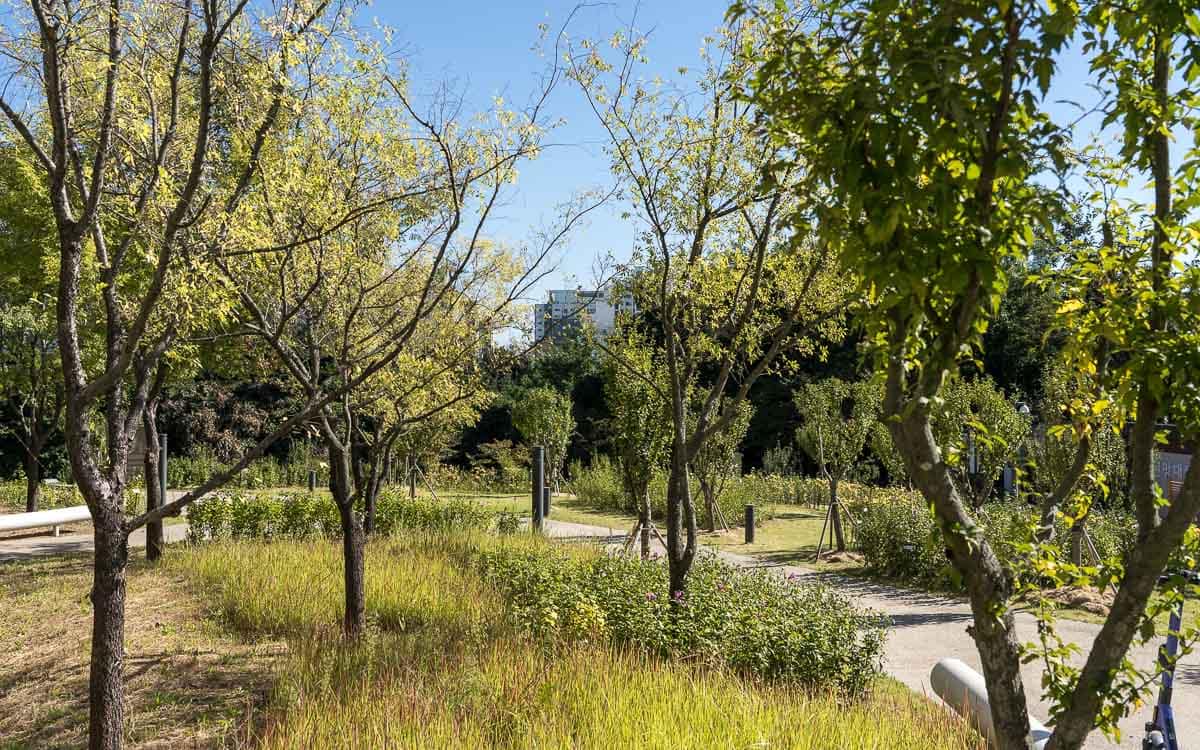
On the larger western side of the park, there are walking paths, rest areas, a pond, and an artificial waterfall. Additionally, visitors can enjoy various scenic landscapes with designated photo zones.
You will also find Naru Madang, an open plaza and small venue that hosts performances.
Gwangjin Forest Naru Park Information
Hours
Park24 hours
Observatory
April - October: 10:00 AM - 7:00 PM
November - March: 9:00 AM - 6:00 PM
Admission
Free
Address
401-14, Gwangjang-ro, Gwangjin-gu, Seoul, 04982, South Korea
GPS Coordinates: 37.54670, 127.09842
How to Get Here
Seoul Subway Line 5 to Gwangnaru StationMap
Official Website
https://english.visitseoul.net/area/GwangjinForestNaruPark/ENP037010
Additional Resources
Viator by TripAdvisor
Viator is a popular online platform that helps travelers book tours, activities, and unique experiences worldwide, including in Seoul. It connects users with a wide selection of options – from sightseeing tours to cultural events and outdoor adventures – all offered by local providers.
Klook
Klook offers discounted tickets and reservations for various attractions and services in Seoul, from theme parks and museums to tours and transportation options.
Rakuten
Save money while exploring Seoul with Rakuten's cashback program. Book your hotels or other services through Rakuten and enjoy cashback rewards and exclusive deals.
If you sign up using the link below, you could earn $30 cashback on your first purchase over $30.
Book Recommendations
For an immersive guide to Seoul, many travelers choose to bring a book along. Fodor's Seoul, for example, offers detailed recommendations on sights, restaurants, maps, and travel tips.
Nearby Sights
Techno Mart
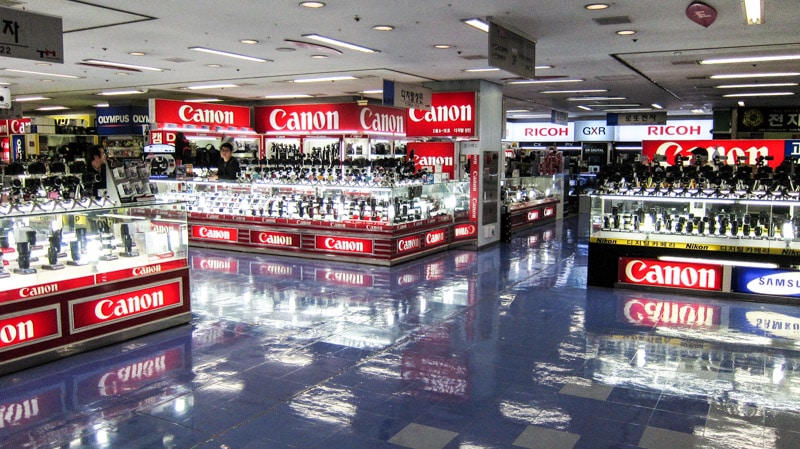
Techno Mart is an eight floor shopping mall and marketplace with over 2,000 electronic stores selling every type of electronics, appliances, and gadgets. If you are in Seoul and you need electronics at reasonable prices, then this in your place. You can find computers, televisions, mobile phones, cameras and lenses, sound systems, computer parts, DVDs, CDs, home appliances, and more.
Cheonho Park
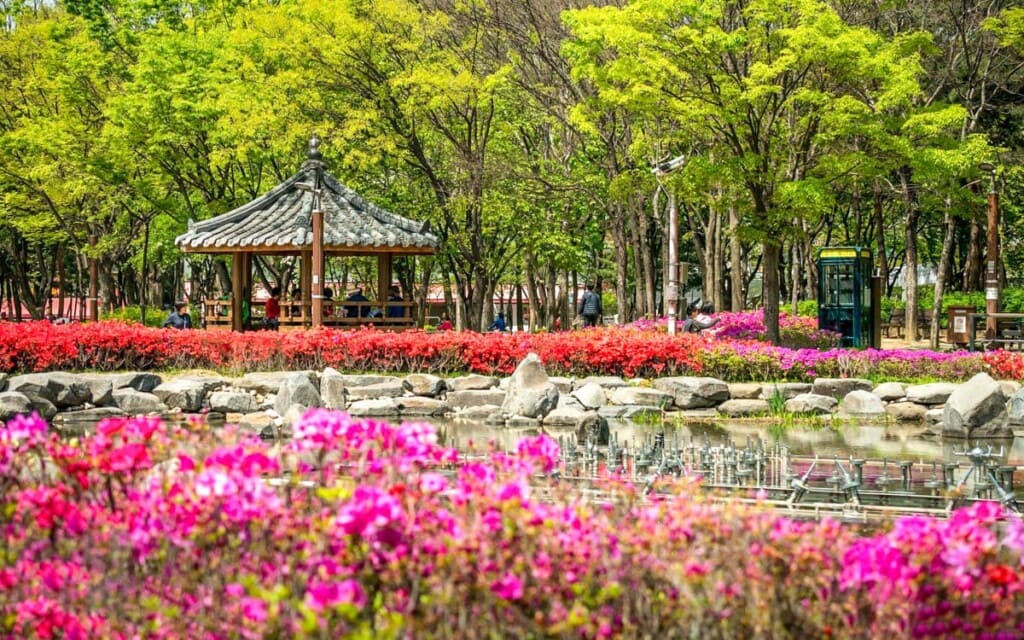
Cheonho Park is a small neighborhood park located in southwestern Seoul, not far from Gwangnaru Hangang Park and Amsa-dong Prehistoric Settlement Site. Though small, the park features a musical fountain, library, outdoor stage, and walking paths. There are also various sports facilities including a basketball court and volleyball court. Though located in the center of the city, Cheonho Park provides a space for relaxation for both locals and tourists.
Kondae (Konkuk University Area)
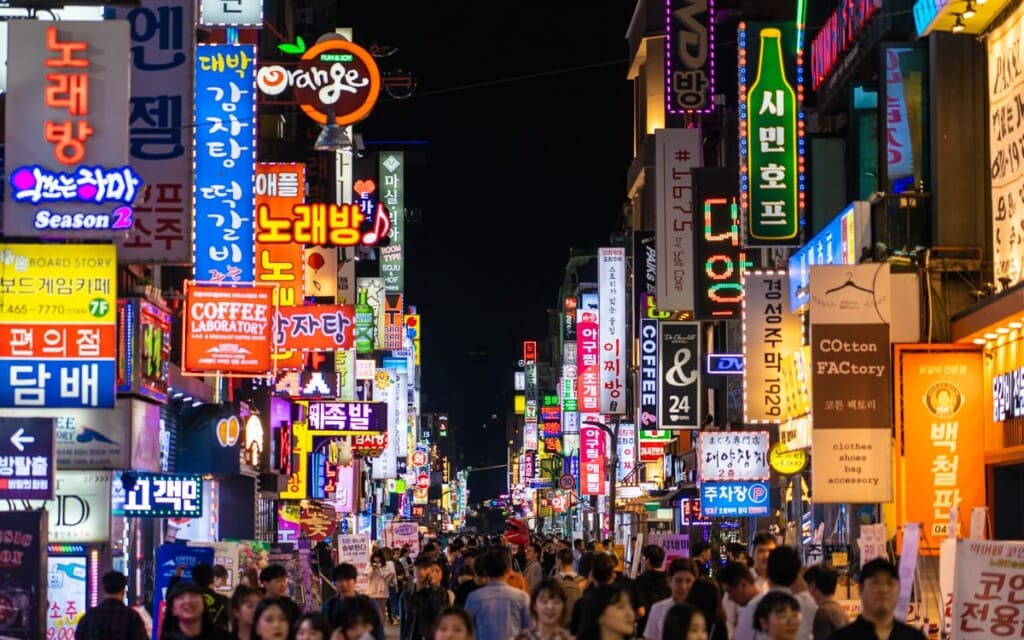
Kondae (Konkuk University), is a crowded nightlife area packed with college students, street food, restaurants, and an almost endless amount of bars. The best time to visit is at night when the place is lit up, loud, and packed with lots of hungry people looking for to party and for cheap food and drinks.
Amsadong Settlement Prehistoric Site
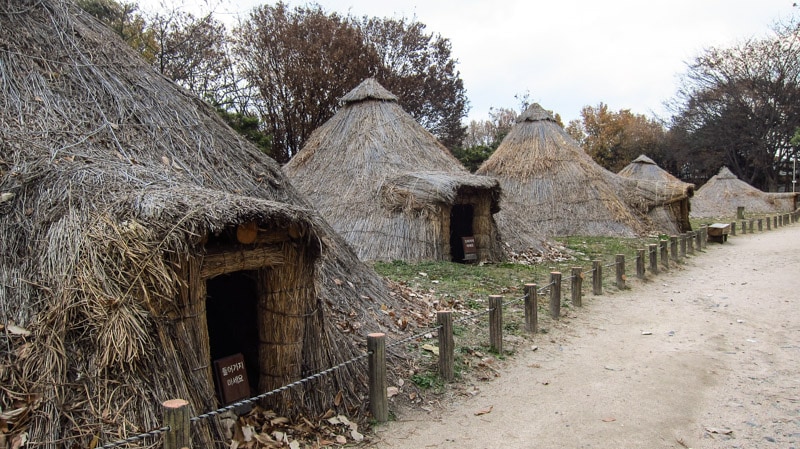
Amsadong Prehistoric Settlement Site, discovered in 1925, was once the location of a Neolithic village situated on the Hangang River over 6,000 years ago. The site was discovered in 1925 after a flood revealed buried earthenware pots. Excavation work did not begin until 40 years later in 1967. After heavy rain in 1925, the Hangang River flooded and soil was swept away.
Jamsil Hangang Park
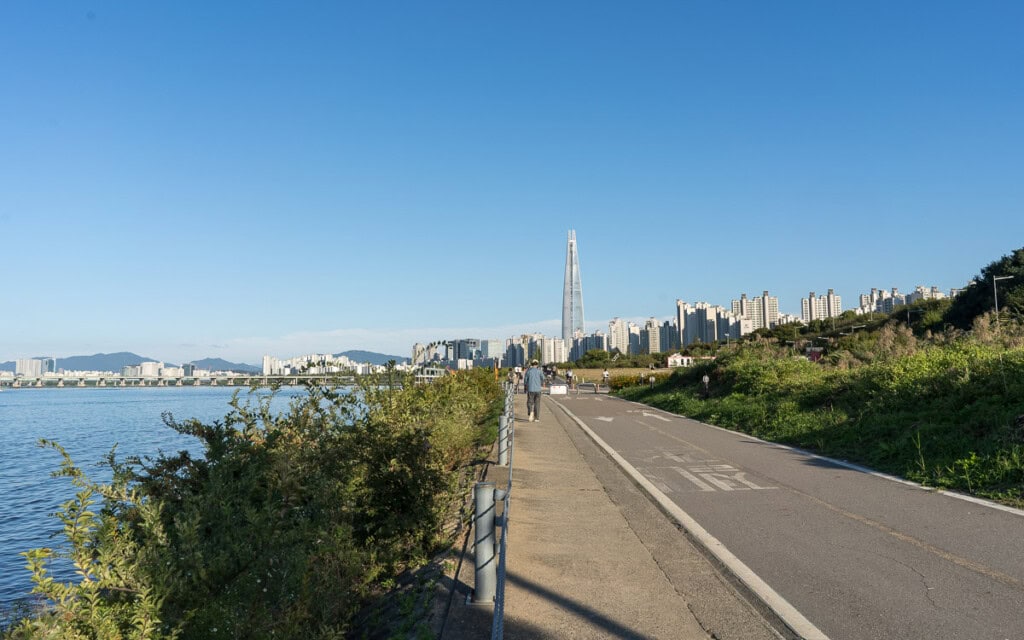
Jamsil Hangang Park is a park in Seoul, South Korea, located along the Hangang River between Jamsil Railway Bridge and Yeongdong Bridge. It is located near the Seoul Sports Complex (Jamsil Sports Complex), home to Seoul Olympic Stadium and Jamsil Baseball Stadium. Though in the heart of Seoul, the park offers a peaceful escape from the city.
Last Updated on Feb 5, 2025
